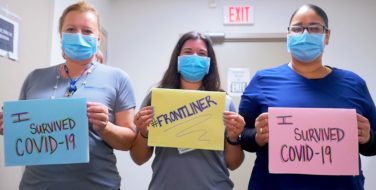A generation ago, if you asked doctors how they were addressing their patients’ experience, most would have either answered they were providing the best (most expert, technically adept, and up-to-date) care they could, or would have no idea what you were talking about. Today, “patient experience” is widely recognized by physicians as a distinct attribute of care; a wholly subjective assessment of performance derived from patients’ feedback, and one that can have a profound effect on their relationship with patients as well as their livelihood. Here’s why.
1. The enormous change in the practice of medicine itself. Fueled by explosive growth in the understanding of human pathophysiology and the commensurate expansion of diagnostic and effective therapeutic modalities, medicine has moved from an artisanal model to an industrial one.1 Most doctors are now employees of organizations like large physician groups, hospitals, or insurers, and even those who own their individual practice work in environments characterized by greater regulatory scrutiny, more performance oversight, and the need to coordinate care with other providers.2 This more corporate approach brings a greater focus on measuring and improving all aspects of care delivery, from the cost of supplies to the experience of “customers.”
2. The unrelenting increase in medical care cost has sharpened the focus of those paying the bills—employers, insurance companies, government payers, and patients—on whether they are getting their money’s worth. All parties want greater value (defined as the quality of the service divided by its cost) for their expenditures. And while there is no consensus on how to improve healthcare delivery in the U.S., there is widespread agreement on what needs fixing. The “triple-aim” developed by the Institute for Healthcare Improvement3 summarizes the goals of reform: improving the health of the population, improving the experience of individuals receiving care, and reducing the per capita cost of care.
3. Patients’ behavior in choosing where and how they get their care has been profoundly influenced by their behavior as consumers. People have been thoroughly acculturated to the idea that consulting crowd-sourced ratings and comments on products and services is an indispensable step in decision-making. As a result, healthcare providers are now exposed to the judgement of their patients about their bedside manner and communication skills, just as the restauranteur has had to answer for his wine list and desserts.
In response to these pressures, many organizations, including my own, have posted the results of patient feedback surveys. Our program at Northwell Health,4 which went live in 2015, makes available “star” ratings on over 1,700 employed physicians, compiled from over 250,000 returned patient surveys covering a rolling 18-month period, and hosts over 100,000 unedited patient comments. During that same time, we have seen dramatic improvements in the scores of our physicians, who nearly universally embrace the program.
As these forces have transformed the approach to measuring and reporting patient experience, prospective patients now expect to be able to “shop” for doctors based on ratings and comments, and physicians, having grown more comfortable with the scrutiny, are focused on meeting their patients’ heightened expectations.
References:
1. Swensen SJ, Meyer GS, Nelson EC, et al. “Cottage Industry to Postindustrial Care – The Revolution in Health Care Delivery.” N Engl J Med. 2010; 362:e12. DOI: 10.1056/NEJMp0911199
2. Kane CK. “Policy Research Paper. Updated Data on Physician Practice Arrangements: For the First Time, Fewer Physicians are Owners Than Employees.” American Medical Association. https://www.ama-assn.org/system/files/2019-07/prp-fewer-owners-benchmark-survey-2018.pdf.
3. http://www.ihi.org/Engage/Initiatives/TripleAim/Pages/default.aspx.
4. https://www.northwell.edu/physician-partners/about-ratings-reviews.








